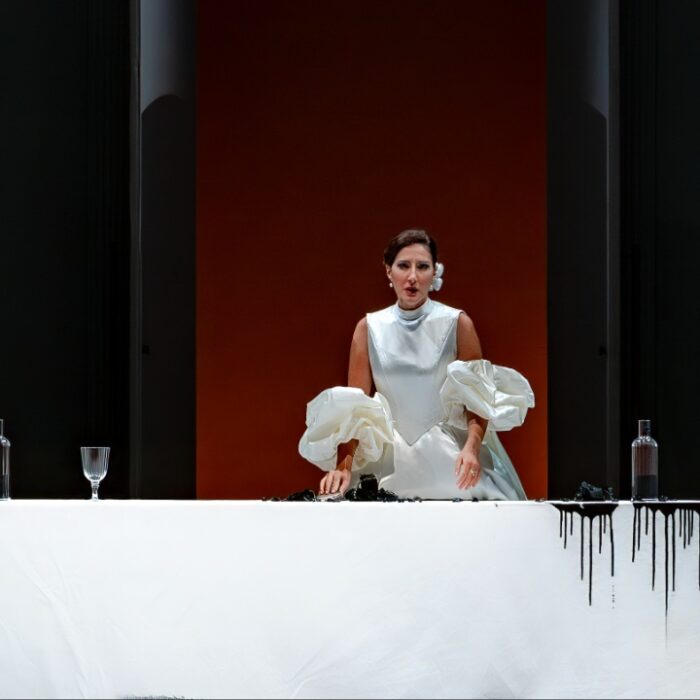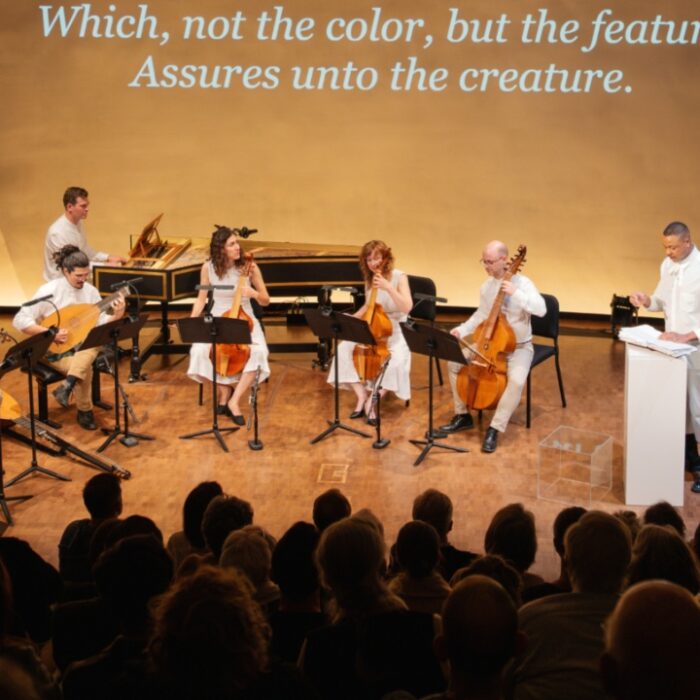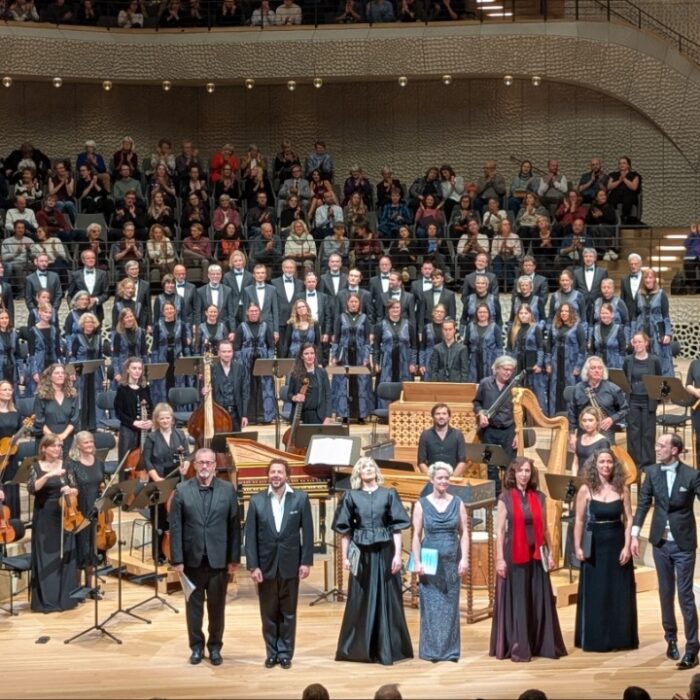
Innsbruck Early Music Festival 2020 Review: Franco Fagioli’s Recital
Fagioli Delivers Vibrant, Albeit Brief, Program
By Alan Neilson(Photo: Innsbrucker Festwochen/Veronika Lercher)
Franco Fagioli’s recital entitled “Cara Sposa” supported by the Il Pomo D’Oro ensemble at this summer’s Early Music Festival in Innsbruck was originally scheduled to run for over two hours.
The COVID pandemic, however, put pay to that idea.
Changes were necessary. With only half the seats in the auditorium available owing to social distancing rules, it was decided to perform the concert over two days ensuring as many people as possible would be able to attend, which in effect meant that each concert lasted approximately one hour.
OperaWire managed to be present for the first evening.
Da Vinci & Handel
The concert was split between four arias written by Leonardo Vinci and Handel supported by musical pieces by Francesco Durante and Handel.
Anyone who has heard one of Fagioli’s many recordings or seen him perform on the opera stage has a good idea of what to expect: his high energy delivery, the rapid and stratospheric coloratura, sudden leaps and shifts from head to chest register and complex embellishing of the vocal line.
However, relegating his formidable talent to no more than a colorful vocal firework display is to do him an injustice; his ability to mold his singing to meet the textual meaning, so as to give voice to its said passions, while simultaneously uncovering the more subtle emotional nuances, was clearly displayed during the concert
This was splendidly highlighted in his presentation of Cosroe’s aria, “Gelido in ogni vena,” taken from Vinci’s “Siroe, re di Persia.” Cosroe believes that he has had his son executed and is gripped by the terror that his ghost may haunt him, and reflects on his own cruelty in killing his innocent son. It is not an emotionally hysterical aria, but one of cold fear and sad reflection, and Fagioli’s rendition, backed by the haunting lilt of the strings captured it perfectly. His coloratura was gentle and nuanced and gave the impression that he was weeping, overcome by his grief. His ornamentations and light trills were always delicate and precise, and vocal colors carefully employed to emphasize his fear.
Nothing was overstated, everything was carefully crafted in what was the most beautiful and moving piece of the evening.
The concert began with Il Pomo D’Oro performing “Concerto no. 2 in G Minor for Strings,” by Francesco Durante. As he was one of Vinci’s teachers, it provided a neat link to Fagioli’s two opening arias, both of which were by Vinci.
The first, “Quel usignolo che innamorato,” was from his opera “Grismondo, re di Polonia.” In what was an engaging opening presentation Fagioli displayed the vocal qualities for which he is well-known.
The aria contrasts a nightingale’s life with and without the love of a mate. To the delicate dance rhythms of the music, Fagioli likewise danced his way gracefully through the piece, mimicking the sound of the nightingale in his fluttering trills and ornamentation; his calls answered by the orchestra.
There was also ample opportunity for him to show off his dashing extended coloratura, which was done with delicacy and charm.
The second aria, “Scherzo dell’onda instabile,” from the opera “Il Modo,” is a reflection by Giasone on a time when he was caught at sea in a raging storm, and this allowed Fagioli to take his vocal pyrotechnic display to another level, as his voice surged one way then the other as he painted a picture of the waves crashing around him.
The agility of his voice was impressive indeed as he pushed it in all directions, changing registers, coloring, and power. His explosive and captivating coloratura enthralled the audience, who gave him a thundering round of applause.
Bringing it Home
After that, he deserved a rest! Il Pomo D’Oro took over with a performance of the “Passacaglia” from Handel’s opera “Agrippina,” which was an opportunity for Zefira Valova, the musical director to show off her skills on the violin. Before Fagioli’s final aria the ensemble also gave an engaging rendition of Handel’s “Concerto Grosso in F Minor”
Fagioli brought the concert to an end with Mirtillo’s aria, “Sento brillar” from Handel’s opera, “Il Pastor Fido,” a reflection on the torment and despair caused by love.
In an expressive and expansive rendition, Fagioli’s bright countertenor showed off its prodigious flexibility once more as he indulged in a string of coloratura displays, including an impressive unaccompanied display as he rounded off the aria, and the recital.
Lasting little under an hour it was certainly on the short side. Fortunately, however, due to the emphatic calling from the audience, Fagioli returned to the stage for an encore, to sing “Vo solcando in mor crudele” from Vinci’s opera “Artaserse,” one of the most popular arias of the 18th century.
Fagioli despatched it with his customary panache, tackling the coloratura and high notes with ease. After further exhortations from the audience, he returned to perform a second piece, this time unaccompanied, in which the unadorned quality of his voice filled the auditorium. It was a suitable way of bringing the concert to an end.
With a running time of nearly 75 minutes, it also ensured the audience left satisfied, without feeling short-changed.



